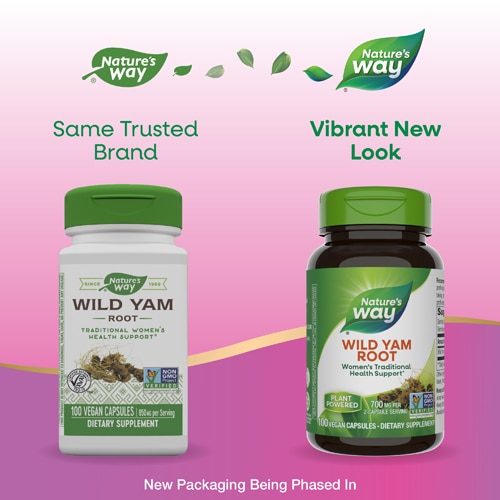Hear or say hormones and one might immediately think of a teenager in the throes of puberty or a woman in her second trimester.
But hormones don’t just arrive during major transitions in our life—and nor are they something to deride. Ever-present, these chemicals, secreted by various organs and glands, course through your bodily tissues and exert a profound influence on your energy, thoughts, behaviors, and health. Or, as the Hormone Health Network reports, “they work slowly, over time, and affect many different processes, including growth and development, metabolism, sexual function, reproduction, and mood.”
Balanced, and hormones can make you feel your best—galvanized, confident, empathic, and enthusiastic about life. But imbalanced—in which one is deficient or excessive—and the opposite may hold true, leaving you feeling moody, exhausted, sore, sleepless, and possibly overwhelmed with persistent health issues.
The first step towards attaining hormonal health is to understand what these chemicals coursing through your body actually are, and then discussing with your physician and getting the appropriate tests. Next up? Supporting hormonal harmony through lifestyle changes, including diet.
With this in mind, here’s a list of four of your most important hormones—and how to support them through nutrition:
1. Estrogen
Call it the feminine hormone. Known to encourage femininity, strengthen feelings of intimacy, and boost libido, estrogen is also linked to your general state of well-being. Produced in the ovaries and adrenals, it not only fosters female health, it also supports all of your connective tissues, including the status of your complexion. Healthy levels of estrogen can make you feel fantastic from head to toe (in part because it works in connection with the “feel good” brain chemical serotonin). Too little estrogen, however can generate irritability and general moodiness, anxiety, and insomnia, while too much can exacerbate premenstrual symptoms and lead to a plethora of complications, including fatigue and weight gain.
Dietary First Aid: Certain foods can appreciably enhance your body’s natural ability to create friendly estrogen and reduce unfriendly estrogen. Cruciferous vegetables—such as broccoli, broccoli sprouts, and cauliflower—may increase your friendly estrogen metabolism, thanks to their high levels of indole-3-carbinol (a phytochemical that can enhance hormonal health). High cooking temps can destroy indole-3-carbinol, so be sure to eat them raw or lightly steamed. Other top options? Seaweed, seeds, sesame, flax, rosemary and salmon.
2. Progesterone
If estrogen is your feminine hormone, consider progesterone your age-defying hormone. It plays a unique role in conjunction with other hormones—for example, given that it acts as a precursor to cortisol, it can bolster your energy. Vital to sustaining hormonal equilibrium, progesterone can invite a sense of calmness, relieve tension, and promote sound sleep. When this critical hormone falls low, however, it can lead to anxiety, sagging skin, water retention, brain fog, and insomnia.
Dietary First Aid: Micronutrients are key to achieving balanced hormones. To support your body’s progesterone levels, snack on sunflower and pumpkin seeds, hazelnuts, and almonds (which are high in Vitamin E), elevate your magnesium consumption through leafy greens, kale, and black beans, and aim to increase your levels of L-arginine (an amino acid that's key to proper hormone function) by eating trout, salmon, pumpkin seeds, chickpeas and lentils.
3. Testosterone
Frequently believed to be the exclusive province of men, testosterone is produced by both males and females. A fundamental hormone that influences your health, sexuality, and energy, ideal levels of testosterone can enhance creativity, cognition and confidence. If levels are low, you may experience disinterest in new activities, reduced libido, lack of motivation and lethargy; too high, and you may experience aggression, acne and increased perspiration, among other symptoms.
Dietary First Aid: Marjoram might not be on the top of most grocery lists, but consider giving it a go. Known to promote hormonal balance, the Mediterranean herb can reduce testosterone; use it in curries, soups and stews. Flax seed is also a terrific option, given that it’s one of the most powerful foods that can lower testosterone naturally. Other smart choices include tuna, garlic, eggs and spearmint tea.
4. DHEA
Multi-faceted and with far-ranging benefits, DHEA—or dehydroepiandrosterone—is generated primarily by your adrenal glands (and, for women, also in the ovaries). Like testosterone, DHEA can facilitate contentment, encourage lean muscle mass, nourish your bones, brain and skin, and foster overall health. Insufficient DHEA, on the other hand, may create a general lack of vitality, from reduced memory and recurrent fatigue to bluer moods and a low sex-drive.
Dietary First Aid: First up in terms of first aid? Check your sugar intake: Overconsumption of the sweet stuff can increase insulin levels, which may lead to a reduced production of DHEA. At the same time, good fats should be eaten, in that they play a fundamental role in creating cholesterol (which is necessary for synthesizing DHEA); find your fix in avocados, nuts, coconut oil and butter, 0lives and olive oil. Grass-fed red meat, free-range poultry, wild yams and anti-inflammatory herbs such as cinnamon, cloves, turmeric, ginger, ginseng and licorice, also cultivate hormonal accord. And with your body back in balance? The possibilities of life will feel endless.




